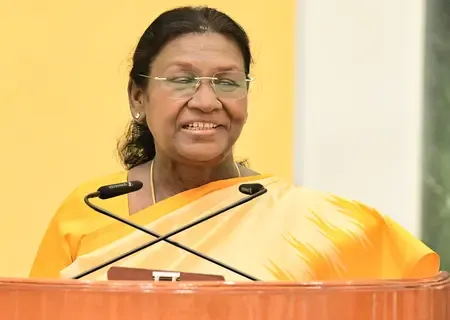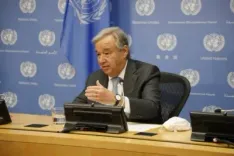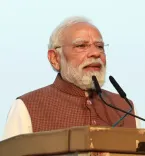Did JDU's Neeraj Kumar Criticize RJD Leader for Comparing Lalu Yadav to Lord Shiva?

Synopsis
Key Takeaways
- Urmila Thakur's comments have created political discord in Bihar.
- JDU's response emphasizes the divide between religious symbolism and political reputation.
- This incident highlights the risks of mixing faith and politics.
- Urmila Thakur's political history showcases her long-standing role in RJD.
- The controversy may influence voter perceptions leading up to the elections.
Patna, July 2 (NationPress) A political storm has erupted in Bihar following RJD MLC Urmila Thakur's comparison of party leader Lalu Prasad Yadav to Lord Shiva during a gathering in Muzaffarpur on Tuesday evening.
Her comments have faced significant backlash from Janata Dal United (JDU).
Party MLC Neeraj Kumar on Wednesday rebuked the comparison as “completely inappropriate.”
“While Lord Shiva is known for the welfare of the universe, Lalu Yadav is responsible for chaos in Bihar. His corruption has embroiled his family in legal troubles. Lord Shiva alleviates suffering, yet Lalu Yadav couldn't even alleviate his own and needed a kidney transplant,” Neeraj Kumar remarked.
RJD leader Urmila Thakur referred to Lalu Yadav as a “living God on earth” who provides a voice and dignity to the impoverished, claiming, “In Kaliyug, one represents Lord Shiva, and the other is Babu Lalu Prasad.”
During her address, Thakur also equated Lalu Yadav to revered Hindu figures like Bhishma Pitamah, Lord Krishna, and Lord Ram, asserting that just as these legendary figures are irreplaceable, so is Lalu Prasad Yadav in the landscape of Bihar politics.
“Shiva embodies the spirit of the underprivileged. His mount is a buffalo, yet he also rides a tiger, which symbolizes harmony as the tiger does not prey on the buffalo. In the same way, Lalu Yadav is a divine leader uniting the poor and marginalized,” she stated, adding that as the daughter of a barber, she achieved a position in the Legislative Council through Lalu Yadav's vision.
This statement has ignited intense discussion within Bihar's political arena, with opposition parties labeling it a “dangerous mix of faith and politics.”
While the RJD has yet to officially respond, political analysts propose that such statements laden with religious sentiment, especially during the election period, may be an attempt to forge an emotional connection with specific voter demographics but could also backfire and stir controversy for the party.
Urmila Thakur, originally from Begusarai, has been involved with the RJD for many years, commencing her political journey with a Zila Parishad victory in 2000 and now serving in the Legislative Council.









